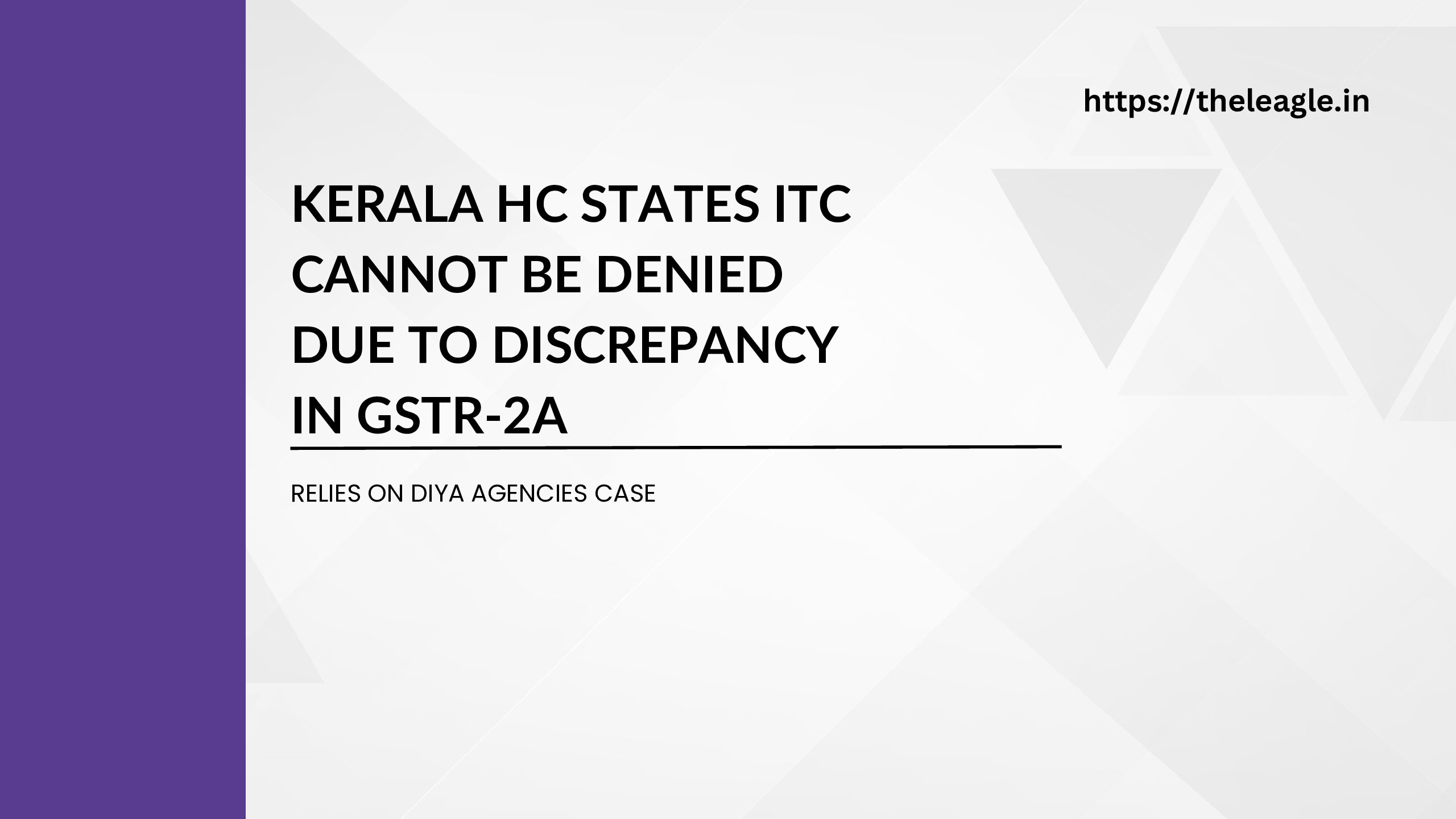In a recent judgment[1], the Kerala High Court has aligned with an emerging jurisprudence wherein the High Courts have held that under the GST regime a taxpayer’s ITC cannot be denied merely on ground of difference between GSTR-2A and GSTR-3B.
In the impugned case, the Kerala High Court expressly noted the ratio of Supreme Court in M/s ECom Gill Coffee Trading Private Limited case[2] and the Calcutta High Court’s judgment in Suncraft Energy Private Limited case[3] to conclude that ITC of an assessee under the GST regime cannot be denied merely on the ground of discrepancy in GSTR-2A and GSTR-3B. It then cited a recent judgment of the Kerala High Court itself in Diya Agencies case[4] where the Kerala High Court had held that:
In view thereof, I find that the impugned Exhibit P-1 assessment order so far denial of the input tax credit to the petitioner is not sustainable, and the matter is remanded back to the Assessing Officer to give opportunity to the petitioner for his claim for input tax credit. If on examination of the evidence submitted by the petitioner, the assessing officer is satisfied that the claim is bonafide and genuine, the petitioner should be given input tax credit. Merely on the ground that in Form GSTR-2A the said tax is not reflected should not be a sufficient ground to deny the assessee the claim of the input tax credit. The assessing authority is therefore, directed to give an opportunity to the petitioner to give evidence in respect of his claim for input tax credit. The petitioner is directed to appear before the assessing authority within fifteen days with all evidence in his possession to prove his claim for higher claim of input tax credit. After examination of the evidence placed by the petitioner/assessee, the assessing authority will pass a fresh order in accordance with law. (para 8) (emphasis added)
While the Kerala High Court’s 4-page order in the impugned case does not offer much scope for analysis, the primary aim of this blog post is two-fold: first, to record that Courts are increasingly taking the view that a taxpayer’s claim for ITC under GST regime cannot and should not be denied on grounds of discrepancy between GSTR-2A and GSTR-3B. This line of reasoning, if continued, will likely further underline the procedural nature of the former return and that it is only for information purposes and not the only basis of substantive claims. Courts are, until now, taking a reasonable view that ITC cannot be denied or affirmed merely based on information recorded and contained in GSTR-2A. Second, I wish to highlight that while in the impugned case the Kerala High Court relied heavily on the ratio in Diya Agencies case, it is important to highlight that in the latter case the Kerala High Court was expressly dealing with a situation where the taxpayer claimed that it was in possession of genuine invoices and bills that proved that transactions in question were genuine. Accordingly, in Diya Agencies case, the taxpayer was directed to appear before the concerned officer to prove the claim of ITC. While in the impugned case, no such fact was recorded by the Kerala High Court though it is not possible to know for sure if such claim was made by the taxpayer. Going forward, these factual distinctions may prove vital in reinforcing or diluting what is an emerging body of case law as regards the relevance of GSTR-2A in claiming ITC.
[1] M/S Henna Medicals v State Tax Officer, Second Circle, SGST Department 2023: KER: 55979.
[2] State of Karnataka v M/S Ecom Gill Coffee Trading Private Limited 2023 SCC OnLine SC 248.
[3] Suncraft Energy Private Limited v The Assistant Commissioner, State Tax, Ballygunge (2023) 8 TMI 174.
[4] Diya Agencies v State Tax Officer 2023 (9) TMI 955.
